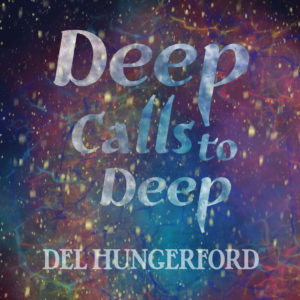Have you ever been in a place where the music that’s playing grates on your nerves? It could be one song or everything on an album causes anxiety, fear, frustration, anger or a myriad of other unpleasant emotions. What causes negative musical reactions?

Image by Pixabay
We all know that music affects people at the emotional level. Over the past few years, science is proving that it also affects us on the physical level. There are other articles on this site that discuss how we can listen to the same piece of music by different artists and have varying reactions to each artist. Besides artist preference, this has to do with the emotions and state of mind of the performer when recording (or performing) that music. In addition, our own feelings also play into that. Basically, there are many ingredients involved in the “recipe” of music listening.
There’s another aspect of this to look at that I’ve not yet delved into. That involves negative reactions to music that’s specifically created for the purposes of healing and relaxation. Again, you’ll have the emotions and intent of the artist as part of that recipe. I want to explore how the listener can respond differently depending on what’s going on in his/her life. Up until recently, this is not something I’d considered too heavily. But, three recent situations have caused me to ponder how healing music can appear to have adverse affects.
Story time! In the spring of 2017, I had someone come to my house to replace my hot water heater. This is a person that I’ve known for a long time. At the time he arrived, I had the music for “Deep Calls to Deep” playing. He went into the bathroom where the hot water heater was located. At some point, he became very agitated and yelled “What the hell is this?” while pointing to my stereo. He referenced my music and then asked me in a perplexed and frustrated tone why I had to create the music. It took me a bit off guard but just to keep the peace, I turned the music way down. When the song changed, he seemed to quiet down. A few days later, he came to finish the job. I purposefully started the album, “New Hope.” He said nothing about the music and seemed relaxed and ready to finish the job. I’m not even sure he remembered the first incident. It’s as if it never happened.
The next two incidents involved the music playing at events that I was attending as a participant/vendor. As with most musicians, they generally have their music playing so people can decide if they want to purchase it or not. In the first situation, a woman entered the room and immediately became agitated. She stated loudly enough that most people could hear “There’s something in this music that’s bothering me… It’s too repetitive.” The song playing at that time was Abiding Love from the album “Cleansing Fire.” That particular song has a steady rhythm in the background. After the song was over, she was fine and never said another word.

Deep Calls to Deep Full Album – $9.99
At the next event, a volunteer was helping in the booth during the second day when she became very spacey and not able to focus. She was making mistakes and was very surprised that she was having troubles. The night before, she confided in me that she’d lost close friends and family members all within the past month. Her attitude was one of wanting to move forward. It wasn’t until the next day I found out it was the music that bothered her.
What I’m going to say from here on out may challenge some belief systems. But, hear me out. No, I don’t have science to back up my comments. It’s all based on observation and feedback from listeners. The three stories I present above aren’t the only instances. Those who subscribe to my newsletter also provide feedback, because I ask for it.
I suspect that even music for the purposes of healing can have interesting effects on our psyche at certain times. It’s why we can listen to a song one day but the next, we can’t. Maybe I’m a little bit of a geek in some things but I feel that in order to fully understand what I’m doing, it’s important to immerse myself in it. My music is spontaneous which means I don’t even know my own music well enough at times to say which song is playing. Because of that, I need to learn it so I can sense/feel/hear what it does. That’s one reason I have it playing in my house. I’m like everyone else – some days a song will come on and I immediately go to the stereo and change it because something in me doesn’t want to hear it at that moment.
Let’s go back to my stories. The guy who came to help me with my hot water heater? It doesn’t surprise me that he reacted in such an aggressive manner when I had a song playing that’s intended for going deeper spiritually. Anything spiritual angers him. I believe that’s what triggered him. I also know this person has a controlling personality. Although there are no words in my music, my intent of spiritual awakening in that particular album obviously came through. The “New Hope” album is all about releasing the trauma of past experiences. Trauma in this guy’s life contributes to his behavioral patterns. After playing “New Hope,” he was different.
In the second incident, I didn’t know the woman at all. However, I did watch her throughout the rest of the day as she sat at her station. None of the other songs appeared to bother her. Although we did eventually have a conversation, I didn’t necessarily get enough information to determine what may have caused the trigger. I have guesses but won’t go into that here. The woman who suffered loss – I know she couldn’t understand why the music was bothering her. She was in a state of grieving and was in the process of working through it. I recommended the “New Hope” album to her along with the flower essence, “Good Grief.” Since we were at an event, she was able to purchase both at that time.
Now, with all that being said, I’m finding that even healing music can cause a negative trigger. It’s all based on what a person is going through at the time. I do find that people who’ve been traumatized tend to prefer songs that don’t have a lot of rhythm or loud percussion. For those seeking greater spiritual enlightenment, there are specific albums for that. I’m finding that people who are opposed to spirituality can have negative reactions to those albums. When we become open (or able) to see beyond our situations, offenses, and expectations, we have fewer negative triggers.

Image by Pixabay
I don’t believe negative triggers are all that bad. For me, it’s simply alerting me to pay attention to what’s causing the reaction. I can then assess what’s going on so that I can deal with it. In some instances, I’ve noticed that by playing something calming while focusing on releasing the negative emotion, I find the music that caused the negative trigger to begin with no longer has the same effect. EMDR music is a great method of dealing with negative triggers. The manner of panning back and forth mimics rapid eye movement sleep patterns, allowing for trauma to be released.
My disclaimer here is that should you listen to any of my music that causes a negative trigger, don’t immediately assume there’s something wrong with the music. I encourage you to make a note of what song is playing. Then, read about the album by clicking on the title from the drop down menu under “Albums.” Here are some steps that might help you process through healing music when you have negative reactions:
- First off… don’t freak out! Just because something negative happens doesn’t mean it’s a bad thing. Ask questions. What was your state of mind while listening? What’s going on in your life right now? What have you been dwelling on? Are you agitated or upset about anything?
- Write down any emotions or frustrations that come up when listening to my music (or any healing music for that matter) that causes a negative trigger.
- If the music has lyrics, go back and listen carefully to the lyrics to try and determine if something said is rubbing you the wrong way. If so, why?
- Journal the process. By keeping written track of what’s going on in your life, you’ll find it easier to assess issues when they arise.
- Find a method to release the negative emotion(s). At the bottom of the EMDR music page, therapist Holly Cummings, recommends that you ponder the negative situation but not actually relive it. Simply notice it and determine to release it, replacing it with a more positive alternative. I have several EMDR songs (six albums to choose from) that should all be helpful!
- It’s good to play music you really enjoy and that brings you to a place of joy while releasing any negative emotions. Be mindful of words in music. If you want to use my music, I’d suggest the following albums: “New Hope” and any of the EMDR songs. Others have found the album “I AM” to also be very calming. Still others enjoy “Cleansing Fire.” All of the EMDR music is based off songs from other albums. It’s best to listen to EMDR music with headsets so you get the full panning effect. The album “Open Heaven” seems to help with physical pain. It also tends to bring a bit more joy into the day.
CONCLUSION
It IS possible to have a negative trigger to healing music. Negative musical reactions aren’t necessarily a bad thing. It’s an opportunity to assess your state of mind so that you can determine where healing may be needed. If we don’t immediately reject the emotional pain and/or trigger, it’s possible we can learn to work through many negative issues that tend to plague the human emotional structure. My encouragement is that if you hear any of MY music that causes a negative musical reaction, switch to songs that calm you. Then, see if you can identify what within the music caused the trigger. More often that not, you might be able to come up with an answer by reading about the song under the appropriate album. I also suggest that “knee jerk reactions” aren’t going to help. Step back and assess the situation. Then, make decisions that aren’t based on emotions.
Del
© 2018 by Del Hungerford
[mailerlite_form form_id=2]

